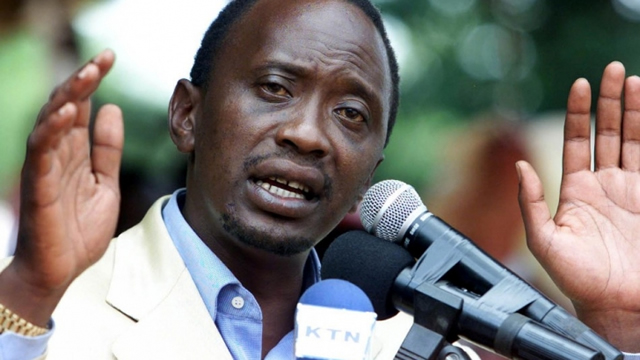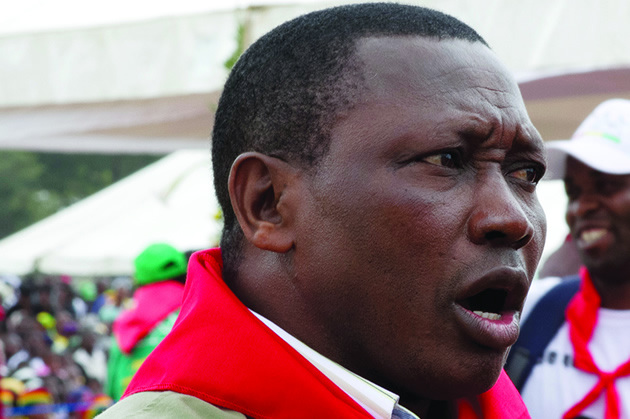Messy struggle for Zambian presidency underway

Lusaka – The battle for Zambia’s top job was already underway before long-ailing president Michael Sata died on Tuesday, but it looks set to become messier and more intense now.
When Sata left the country for medical attention in Britain last week he named Defence and Justice Minister Edgar Lungu as acting president.
Lungu who is also secretary general of the ruling Patriotic Front is among the favourites to take over this country of 15 million people, a major copper producer.
He leads one of two main camps which had formed this year within the PF leadership as it became clear that Sata was in poor health – although this was regularly denied by the government.
Lungu is likely to enjoy the backing of the majority Bemba-speaking group as a presidential candidate, despite that not being his ethnic language.
But a candidate could yet emerge from within that group which includes Finance Minister Alexander Chikwanda, former defence minister Geoffrey Mwamba and Sata’s son Mulenga who is Lusaka mayor and PF chairperson for Lusaka province.
Chikwanda, a veteran finance minister would at times be given presidential powers when Sata left the country.
But Lungu may have to wait to take his seat at the table.
Under Zambia’s constitution his party rival vice-president Guy Scott should be acting president until elections are held in 90 days.
Scott, 70, could take up the interim role, but is likely to be ruled out of running for office himself because although he was born in Zambia his Scottish parents were not.
Even if a new constitution under consideration makes Scott eligible his chances of being elected president of the ruling Patriotic Front (PF) are seen as remote.
He would be Africa’s first white president since FW de Klerk led apartheid South Africa.
But Scott has been linked to Wynter Kabimba who until end of August was the justice minister, and former tourism minister Sylvia Masebo.
Before his unceremonious dismissal Kabimba, in particular, was seen as close and the heir-apparent to Sata.
Outside the ruling party former president Rupiah Banda who is facing graft charges has hinted at a possible return to active politics.
“I’m legally eligible to stand,” he said early this month citing calls from his supporters to return to the political fray.
Banda lost to the PF in the 2011 elections but he could pose a formidable challenge to the ruling party.
Sata was catapulted to the presidency in 2011 amid public anger at corruption and frustration among those yet to benefit from a copper mining boom.
But he leaves behind a country buckling under the weight of unemployment that remains around 60 percent.
Meanwhile, Scott, a 70-year-old ex-farmer and economist has become Zambia’s acting president ending speculation that his heritage would stop him being acting leader in the southern African state where white people make up less than 40,000 of Zambia’s 13 million-strong population.
University of Zambia political scientist Lee Habasonda says Scott’s critics may mount a legal challenge against his appointment by invoking the constitution’s “parentage clause” which requires the president to be a “third generation” Zambian.
However, he believes Scott qualifies to be caretaker president as the constitution also states that in the event of the president’s death, his deputy – a post Scott has held since 2011 – will serve as acting leader until elections are held within 90 days.
The “parentage clause” was inserted after the advent of multi-party democracy in Zambia in 1990 by then-President Frederick Chiluba to prevent his bitter rival Kenneth Kaunda – the first post-independence leader whose father was born in what is now Malawi from running for office again.
Arguing that it should be scrapped, Habasonda says: “It’s not relevant in the 21st Century. It’s undemocratic and doesn’t fit in with a globalised world.”
The elected MP for Zambia’s capital Lusaka, Scott’s appointment is undoubtedly historic: He has become Africa’s first white president in a black-majority state since racially inspired minority rule ended on the continent, with the collapse of the apartheid regime in South Africa in 1994.
But Habasonda doubts that Scott will run for the presidency.
“He understands his limits. He’s content with what he’s got, and age counts against him,” Habasonda said.
After Sata appointed him as vice-president in 2011, he attended high-level meetings with other African leaders.
“I think they regard me as a sort of mascot, a good luck charm for African politics,” Scott said in 2013 interview published in the UK’s Guardian newspaper.
On Sata, he commented: “Michael’s very clever, he knows people tend to regard him as a racist because he talks rough.
“He’s tried it out on me already. He says things like, ‘What would you be if you weren’t white?’ I said, ‘The president?’ That shut him up.”
Habasonda believes that Sata chose him as his deputy in order to “link” Zambia to Western powers, and because he was a major funder of the Patriotic Front (PF) party, helping it to gain power for the first time in 2011 after Sata spearheaded the modernisation of the party.
Sata also failed to appoint Scott as acting president when he was absent from the country showing his lack of political influence in the PF government.
Defence Minister Edgar Lungu was the last person to be appointed to the role when Sata fell ill raising speculation that he was the late leader’s preferred successor.
“The defence minister is the leading contender. He’s more likely to be accepted in the party. He’s a lot more neutral and not aligned with regional [Zambian] politics,” Habasonda said.
Scott was born in the Zambian town of Livingstone to a father of Scottish descent and a mother of English descent.
He studied in the UK, graduating in economics from the prestigious Cambridge University and returned to Zambia at the advent of multi-party politics in 1990.
Scott’s political views do not fit in with the stereotypical image of white people in Africa. — Reuters










Comments